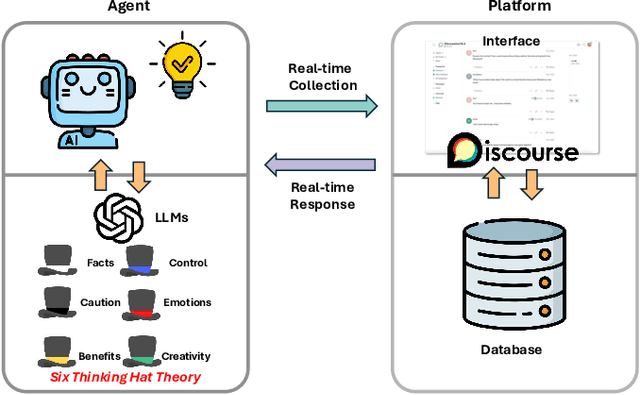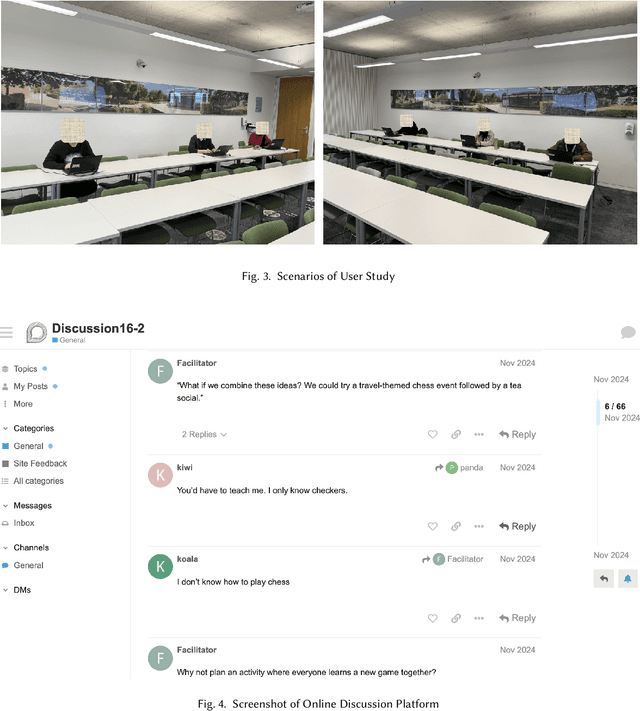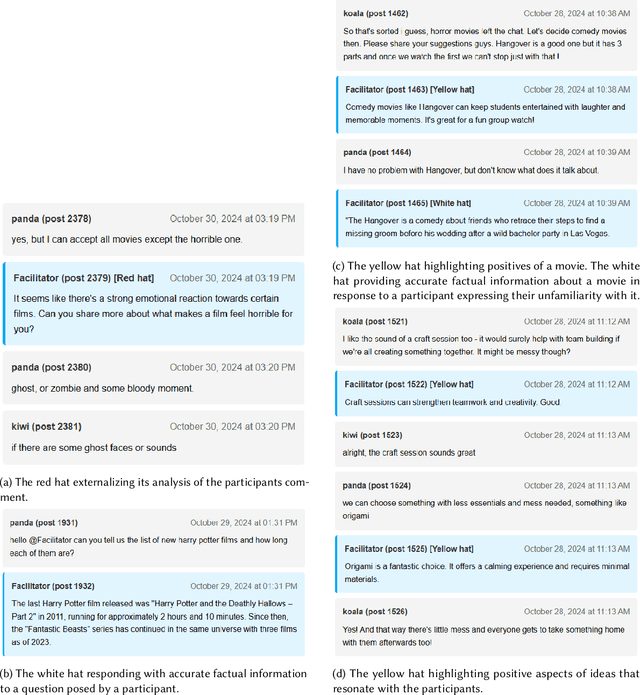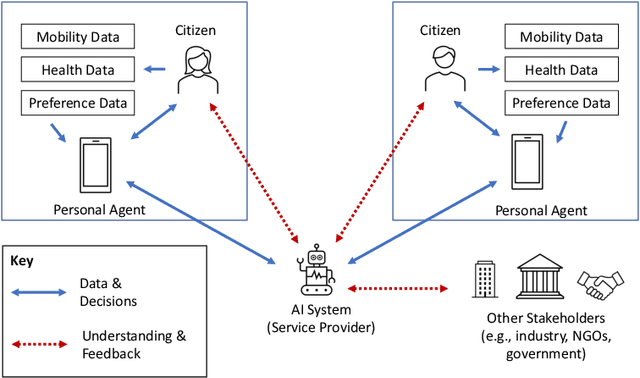Vahid Yazdanpanah
Facilitating Automated Online Consensus Building through Parallel Thinking
Mar 16, 2025



Abstract:Consensus building is inherently challenging due to the diverse opinions held by stakeholders. Effective facilitation is crucial to support the consensus building process and enable efficient group decision making. However, the effectiveness of facilitation is often constrained by human factors such as limited experience and scalability. In this research, we propose a Parallel Thinking-based Facilitation Agent (PTFA) that facilitates online, text-based consensus building processes. The PTFA automatically collects textual posts and leverages large language models (LLMs) to perform all of the six distinct roles of the well-established Six Thinking Hats technique in parallel thinking. To illustrate the potential of PTFA, a pilot study was carried out and PTFA's ability in idea generation, emotional probing, and deeper analysis of ideas was demonstrated. Furthermore, a comprehensive dataset that contains not only the conversational content among the participants but also between the participants and the agent is constructed for future study.
From Intelligent Agents to Trustworthy Human-Centred Multiagent Systems
Oct 05, 2022
Abstract:The Agents, Interaction and Complexity research group at the University of Southampton has a long track record of research in multiagent systems (MAS). We have made substantial scientific contributions across learning in MAS, game-theoretic techniques for coordinating agent systems, and formal methods for representation and reasoning. We highlight key results achieved by the group and elaborate on recent work and open research challenges in developing trustworthy autonomous systems and deploying human-centred AI systems that aim to support societal good.
* Appears in the Special Issue on Multi-Agent Systems Research in the United Kingdom
Coordinating Multiagent Industrial Symbiosis
Jun 02, 2020
Abstract:We present a formal multiagent framework for coordinating a class of collaborative industrial practices called Industrial Symbiotic Networks (ISNs) as cooperative games. The game-theoretic formulation of ISNs enables systematic reasoning about what we call the ISN implementation problem. Specifically, the characteristics of ISNs may lead to the inapplicability of standard fair and stable benefit allocation methods. Inspired by realistic ISN scenarios and following the literature on normative multiagent systems, we consider regulations and normative socio-economic policies as coordination instruments that in combination with ISN games resolve the situation. In this multiagent system, employing Marginal Contribution Nets (MC-Nets) as rule-based cooperative game representations foster the combination of regulations and ISN games with no loss in expressiveness. We develop algorithmic methods for generating regulations that ensure the implementability of ISNs and as a policy support, present the policy requirements that guarantee the implementability of all the desired ISNs in a balanced-budget way.
Quantified Degrees of Group Responsibility (Extended Abstract)
Jan 23, 2018Abstract:This paper builds on an existing notion of group responsibility and proposes two ways to define the degree of group responsibility: structural and functional degrees of responsibility. These notions measure the potential responsibilities of (agent) groups for avoiding a state of affairs. According to these notions, a degree of responsibility for a state of affairs can be assigned to a group of agents if, and to the extent that, the group has the potential to preclude the state of affairs.
 Add to Chrome
Add to Chrome Add to Firefox
Add to Firefox Add to Edge
Add to Edge